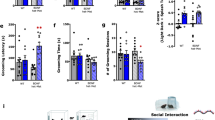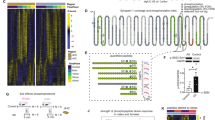Abstract
Chronic and acute stressors have been linked to changes in hippocampal function and anxiety-like behaviors. Both produce changes in gene expression, but the extent to which these changes endure beyond the end of stress remains poorly understood. As an essential first step to characterize abnormal patterns of gene expression after stress, this study demonstrates how chronic restraint stress (CRS) modulates gene expression in response to a novel stressor in the hippocampus of wild-type mice and the extent to which these changes last beyond the end of CRS. Male C57/bl6 mice were subjected to (1) a forced swim test (FST), (2) corticosterone (Cort) or vehicle injections, (3) CRS for 21 days and then a FST, or (4) allowed to recover 21 days after CRS and subjected to FST. Hippocampal mRNA was extracted and used to generate cDNA libraries for microarray hybridization. Naive acute stressors (FST and vehicle injection) altered similar sets of genes, but Cort treatment produced a profile that was distinct from both FST and vehicle. Exposure to a novel stress after CRS activated substantially more and different genes than naive exposure. Most genes increased by CRS were decreased after recovery but many remained altered and did not return to baseline. Pathway analysis identified significant clusters of differentially expressed genes across conditions, most notably the nuclear factor kappa-light-chain-enhancer of B cells (NF-κB) pathway. Quantitative reverse transcription-PCR (qRT-PCR) validated changes from the microarrays in known stress-induced genes and confirmed alterations in the NF-κB pathway genes, Nfkbia, RelA and Nfkb1. FST increased anxiety-like behavior in both the naive and recovery from CRS conditions, but not in mice 24h subsequent to their CRS exposure. These findings suggest that the effects of naive stress are distinct from Cort elevation, and that a history of stress exposure can permanently alter gene expression patterns in the hippocampus and the behavioral response to a novel stressor. These findings establish a baseline profile of normal recovery and adaptation to stress. Importantly, they will serve as a conceptual basis to facilitate the future study of the cellular and regional basis of gene expression changes that lead to impaired recovery from stress, such as those that occur in mood and anxiety disorders.
This is a preview of subscription content, access via your institution
Access options
Subscribe to this journal
Receive 12 print issues and online access
$259.00 per year
only $21.58 per issue
Buy this article
- Purchase on Springer Link
- Instant access to full article PDF
Prices may be subject to local taxes which are calculated during checkout



Similar content being viewed by others
References
Kessler RC . The effects of stressful life events on depression. Annu Rev Psychol 1997; 48: 191–214.
Miklowitz DJ . Functional impairment, stress, and psychosocial intervention in bipolar disorder. Curr Psychiatry Rep 2011; 13: 504–512.
McEwen BS, Gianaros PJ . Stress- and allostasis-induced brain plasticity. Annu Rev Med 2011; 62: 431–445.
Grillon C, Southwick SM, Charney DS . The psychobiological basis of posttraumatic stress disorder. Mol Psychiatry 1996; 1: 278–297.
Post RM, Weiss SR . Sensitization and kindling phenomena in mood, anxiety, and obsessive-compulsive disorders: the role of serotonergic mechanisms in illness progression. Biol Psychiatry 1998; 44: 193–206.
McEwen BS . Stress and hippocampal plasticity. Annu Rev Neurosci. 1999; 22: 105–122.
Joels M, Baram TZ . The neuro-symphony of stress. Nat Rev Neurosci 2009; 10: 459–466.
Datson NA, Polman JA, de Jonge RT, van Boheemen PT, van Maanen EM, Welten J et al. Specific regulatory motifs predict glucocorticoid responsiveness of hippocampal gene expression. Endocrinology 2011; 152: 3749–3757.
Datson NA, van den Oever JM, Korobko OB, Magarinos AM, de Kloet ER, McEwen B . Prior history of chronic stress changes the transcriptional response to glucocorticoid challenge in the dentate gyrus region of the male rat hippocampus. Endocrinology 2013; 154: 3261–3272.
Polman JA, Hunter RG, Speksnijder N, van den Oever JM, Korobko OB, McEwen BS et al. Glucocorticoids modulate the mTOR pathway in the hippocampus: differential effects depending on stress history. Endocrinology 2012; 153: 4317–4327.
Datson NA, Speksnijder N, Mayer JL, Steenbergen PJ, Korobko O, Goeman J et al. The transcriptional response to chronic stress and glucocorticoid receptor blockade in the hippocampal dentate gyrus. Hippocampus 2012; 22: 359–371.
Liu Y, Yang N, Zuo P . cDNA microarray analysis of gene expression in the cerebral cortex and hippocampus of BALB/c mice subjected to chronic mild stress. Cell Mol Neurobiol 2010; 30: 1035–1047.
Ejchel-Cohen TF, Wood GE, Wang JF, Barlow K, Nobrega JN, SM B et al. Chronic restraint stress decreases the expression of glutathione S-transferase pi2 in the mouse hippocampus. Brain Res 2006; 1090: 156–162.
Kim KS, Han PL . Optimization of chronic stress paradigms using anxiety- and depression-like behavioral parameters. J Neurosci Res 2006; 83: 497–507.
Livak KJ, Schmittgen TD . Analysis of relative gene expression data using real-time quantitative PCR and the 2(-Delta Delta C(T)) Method. Methods 2001; 25: 402–408.
Convit A . Links between cognitive impairment in insulin resistance: an explanatory model. Neurobiol Aging 2005; 26 ((Suppl 1)): 31–35.
Bullitt E . Expression of c-fos-like protein as a marker for neuronal activity following noxious stimulation in the rat. J Comp Neurol 1990; 296 ((4)): 517–530.
Gray JD, Milner TA, McEwen BS . Dynamic plasticity: the role of glucocorticoids, brain-derived neurotrophic factor and other trophic factors. Neuroscience 2013; 239: 214–227.
Funder JW . Glucocorticoid and mineralocorticoid receptors: biology and clinical relevance. Annu Rev Med 1997; 48: 231–240.
Smid GE, van der Velden PG, Lensvelt-Mulders GJ, Knipscheer JW, Gersons BP, Kleber RJ . Stress sensitization following a disaster: a prospective study. Psychol Med 2012; 42: 1675–1686.
Iwamoto Y, Morinobu S, Takahashi T, Yamawaki S . Single prolonged stress increases contextual freezing and the expression of glycine transporter 1 and vesicle-associated membrane protein 2 mRNA in the hippocampus of rats. Prog Neuropsychopharmacol Biol Psychiatry 2007; 31: 642–651.
Kabbaj M, Evans S, Watson SJ, Akil H . The search for the neurobiological basis of vulnerability to drug abuse: using microarrays to investigate the role of stress and individual differences. Neuropharmacology 2004; 47 ((Suppl 1)): 111–122.
Andrus BM, Blizinsky K, Vedell PT, Dennis K, Shukla PK, Schaffer DJ et al. Gene expression patterns in the hippocampus and amygdala of endogenous depression and chronic stress models. Mol Psychiatry 2012; 17: 49–61.
Melia KR, Ryabinin AE, Schroeder R, Bloom FE, Wilson MC . Induction and habituation of immediate early gene expression in rat brain by acute and repeated restraint stress. J Neurosci 1994; 14: 5929–5938.
Cullinan WE, Herman JP, Battaglia DF, Akil H, Watson SJ . Pattern and time course of immediate early gene expression in rat brain following acute stress. Neuroscience 1995; 64: 477–505.
Lang F, Strutz-Seebohm N, Seebohm G, Lang UE . Significance of SGK1 in the regulation of neuronal function. J Physiol 2010; 588 ((Pt 18)): 3349–3354.
Smith MA, Makino S, Kvetnansky R, Post RM . Stress and glucocorticoids affect the expression of brain-derived neurotrophic factor and neurotrophin-3 mRNAs in the hippocampus. J Neurosci 1995; 15 ((Pt 1)): 1768–1777.
Sapolsky RM, Krey LC, McEwen BS . Glucocorticoid-sensitive hippocampal neurons are involved in terminating the adrenocortical stress response. Proc Natl Acad Sci USA 1984; 81: 6174–6177.
Marmigere F, Givalois L, Rage F, Arancibia S, Tapia-Arancibia L . Rapid induction of BDNF expression in the hippocampus during immobilization stress challenge in adult rats. Hippocampus 2003; 13: 646–655.
Magarinos AM, Li CJ, Gal Toth J, Bath KG, Jing D, Lee FS et al. Effect of brain-derived neurotrophic factor haploinsufficiency on stress-induced remodeling of hippocampal neurons. Hippocampus 2011; 21: 253–264.
Naert G, Ixart G, Maurice T, Tapia-Arancibia L, Givalois L . Brain-derived neurotrophic factor and hypothalamic-pituitary-adrenal axis adaptation processes in a depressive-like state induced by chronic restraint stress. Mol Cell Neurosci 2011; 46: 55–66.
De Bosscher K, Vanden Berghe W, Haegeman G . The interplay between the glucocorticoid receptor and nuclear factor-kappaB or activator protein-1: molecular mechanisms for gene repression. Endocr Rev 2003; 24: 488–522.
Miller AH, Maletic V, Raison CL . Inflammation and its discontents: the role of cytokines in the pathophysiology of major depression. Biol Psychiatry 2009; 65: 732–741.
Haroon E, Raison CL, Miller AH . Psychoneuroimmunology meets neuropsychopharmacology: translational implications of the impact of inflammation on behavior. Neuropsychopharmacology 2012; 37: 137–162.
Cohen H, Kozlovsky N, Matar MA, Zohar J, Kaplan Z . The characteristic long-term upregulation of hippocampal NF-kappaB complex in PTSD-like behavioral stress response is normalized by high-dose corticosterone and pyrrolidine dithiocarbamate administered immediately after exposure. Neuropsychopharmacology 2011; 36: 2286–2302.
Feldker DE, Morsink MC, Veenema AH, Datson NA, Proutski V, Lathouwers D et al. The effect of chronic exposure to highly aggressive mice on hippocampal gene expression of non-aggressive subordinates. Brain Res 2006; 1089: 10–20.
Koo JW, Russo SJ, Ferguson D, Nestler EJ, Duman RS . Nuclear factor-kappaB is a critical mediator of stress-impaired neurogenesis and depressive behavior. Proc Natl Acad Sci USA 2010; 107: 2669–2674.
Rao NA, McCalman MT, Moulos P, Francoijs KJ, Chatziioannou A, Kolisis FN et al. Coactivation of GR and NFKB alters the repertoire of their binding sites and target genes. Genome Res 2011; 21: 1404–1416.
Lucas LR, Wang CJ, McCall TJ, McEwen BS . Effects of immobilization stress on neurochemical markers in the motivational system of the male rat. Brain Res 2007; 1155: 108–115.
Simpkiss JL, Devine DP . Responses of the HPA axis after chronic variable stress: effects of novel and familiar stressors. Neuro Endocrinol Lett 2003; 24: 97–103.
Mehta D, Klengel T, Conneely KN, Smith AK, Altmann A, Pace TW et al. Childhood maltreatment is associated with distinct genomic and epigenetic profiles in posttraumatic stress disorder. Proc Natl Acad Sci USA 2013; 110: 8302–8307.
Hunter RG, McCarthy KJ, Milne TA, Pfaff DW, McEwen BS . Regulation of hippocampal H3 histone methylation by acute and chronic stress. Proc Natl Acad Sci USA 2009; 106: 20912–20917.
Hunter RG, McEwen BS . Stress and anxiety across the lifespan: structural plasticity and epigenetic regulation. Epigenomics 2013; 5: 177–194.
Heiman M, Schaefer A, Gong S, Peterson JD, Day M, Ramsey KE et al. A translational profiling approach for the molecular characterization of CNS cell types. Cell 2008; 135: 738–748.
Strekalova T, Couch Y, Kholod N, Boyks M, Malin D, Leprince P et al. Update in the methodology of the chronic stress paradigm: internal control matters. Behav Brain Funct 2011; 7: 9.
Vyas A, Pillai AG, Chattarji S . Recovery after chronic stress fails to reverse amygdaloid neuronal hypertrophy and enhanced anxiety-like behavior. Neuroscience 2004; 128: 667–673.
Acknowledgements
This project was supported by National Institutes of Health grants MH41256 and the Hope for Depression Research Foundation grant RGA no. 13-004 to BSM and the Gary R. Helman Fellowship to JDG.
Author information
Authors and Affiliations
Corresponding author
Ethics declarations
Competing interests
The authors declare no conflict of interest.
Additional information
Supplementary Information accompanies the paper on the Molecular Psychiatry website
Supplementary information
Rights and permissions
About this article
Cite this article
Gray, J., Rubin, T., Hunter, R. et al. Hippocampal gene expression changes underlying stress sensitization and recovery. Mol Psychiatry 19, 1171–1178 (2014). https://doi.org/10.1038/mp.2013.175
Received:
Revised:
Accepted:
Published:
Issue Date:
DOI: https://doi.org/10.1038/mp.2013.175
Keywords
This article is cited by
-
Neurocircuitry underlying the antidepressant effect of retrograde facial botulinum toxin in mice
Cell & Bioscience (2023)
-
The cortisol switch between vulnerability and resilience
Molecular Psychiatry (2023)
-
Differential expression of Dusp1 and immediate early response genes in the hippocampus of rats, subjected to forced swim test
Scientific Reports (2023)
-
Brain mitochondrial diversity and network organization predict anxiety-like behavior in male mice
Nature Communications (2023)
-
Intermittent Restraint Stress and Recovery on GPCR Expression in Brain/Gut Axis of Mice: Activation of Adrenergic, Dopamine, Serotonin and Melatonin Receptors During Stress and Ease Response
Proceedings of the Zoological Society (2023)



